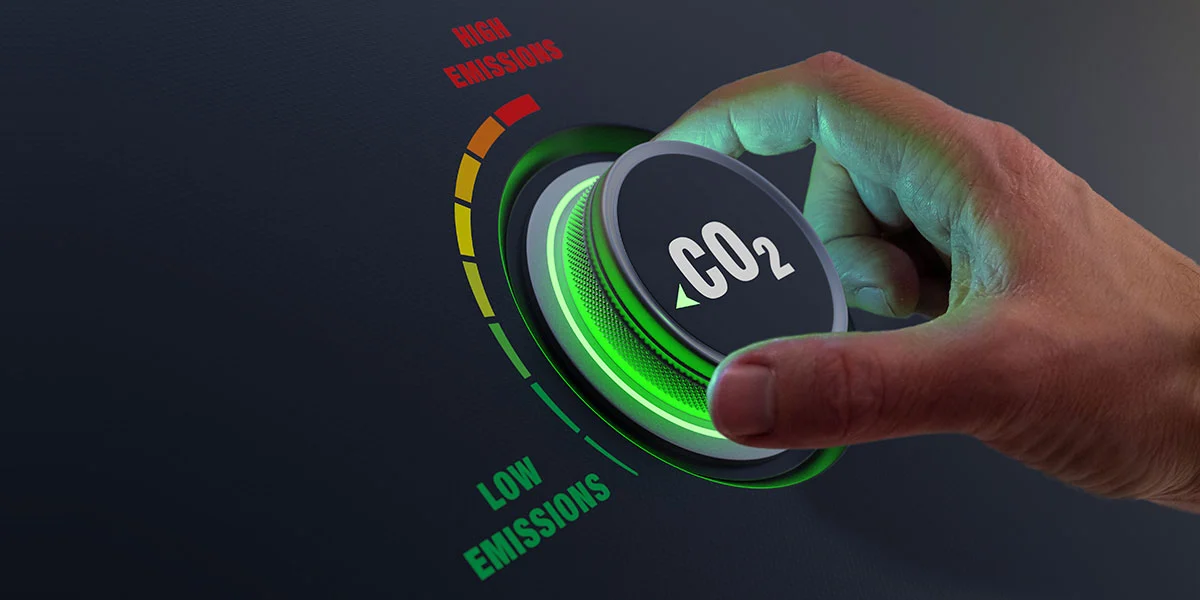
Mar 14, 2023
Blog Digital World The goal is net-zero, but how will companies achieve it?
Companies the world over are searching for ways to lower their carbon emissions. Larger companies have publicly set ambitious aims to reach net-zero, while others are simply looking for ways to make their operations greener. Whatever the goalpost, decarbonization requires careful planning. Every business is unique, as is every carbon management strategy. Carbon management software is emerging as a sought-after solution for companies navigating their journey to sustainability.
As a result, the carbon management software market is poised for sustained growth. BCC Research has estimated that the industry will reach heights of $21.4 billion by the end of 2027, with projected growth falling at a CAGR of 12.4% between 2022-2027.
With climate change approaching crisis point, it's clear that decarbonization strategies cannot wait. A go-slow approach might have made sense a decade ago, but today, as the transition of the world economy to a low-carbon foundation accelerates, that strategy is risky. Leaders must focus on setting appropriate but ambitious reduction targets, providing robust and assured climate data, and adjusting their businesses to a more sustainable footing. This must be a critical focus going forward.
It’s an urgent situation, but fortunately, plenty of businesses are taking the steps to reduce emissions. Tesla has begun tracking electricity and natural gas usage for their sites and is planning to build out its global carbon emissions data in the future. Ernst & Young announced that it has reduced GHG emissions and is carbon negative for the second year.
In 2021, Mitsubishi Electric said it had achieved a 36% reduction in CO2 emissions from FY2001, and about a 56% reduction from FY1991 level. By 2050, Mitsubishi Electric aims to reach net-zero total emissions.
Shell is another giant with hopes to drastically reduce its carbon footprint. The company has outlined intentions to reduce its net carbon footprint by around 50% by 2050. Such initiatives and commitments are driving major investments in renewables and in energy efficiency.
Many other industry players are joining arms in the formation of strategic alliances. OneTrust recently acquired Planetly, a German climate action and carbon management company. The acquisition added sustainability management to the OneTrust platform, as well as a team of 120 carbon accounting experts. These corporate commitments are creating real hope for a greener, more sustainable future.
BCC Research’s latest report dives into the global market outlook for carbon management software. Offering regional market data and in-depth analysis, the report offers an invaluable guide for those navigating this space.
At the intersection of emerging low-carbon systems lie a wealth of opportunities to address both the climate crisis and create new value. While climate solutions are necessary for creating a greener future, many are currently experiencing severe bottlenecks. For example, many consumers are hesitant to purchase electric vehicles because charging stations are scarce, but charging station providers are hesitant to build more infrastructure without clear evidence that it will be used regularly.
It's clear that decarbonization technologies will require billions in capital investment. The key to overcoming such challenges is for leaders across industries to adopt a system-of-systems approach. This would allow key players to pool their resources to create more complex systems that are better suited to approach the mammoth challenge of decarbonization.
The trading of carbon credits is one cross-system opportunity that could help businesses achieve ambitious net-zero goals. A scaled, well-functioning carbon credit trading market could motivate a wide range of players to remove and store carbon or otherwise reduce emissions. The ability to buy and sell credits could also draw in more funding, accelerating and growing initiatives to develop highly effective carbon sinks.
The road to net zero is undoubtedly plagued with bumps. But this means lucrative opportunities for the creation of efficient carbon management software are emerging, as more and more companies seek to decarbonize their operations.
BCC Research’s latest report dives into the global market outlook for carbon management software. Offering regional market data and in-depth analysis, the report offers an invaluable guide for those navigating this space.
Download your complimentary report overview to discover more. Alternatively, consider becoming a member of the BCC Research library. Membership grants access to the entire catalog of reports within the Information Technology category. Get in touch below to discuss this option with a helpful member of our team.

Olivia Lowden is a Junior Copywriter at BCC Research, writing content on everything from sustainability to fintech. Before beginning at BCC Research, she received a First-Class Master’s Degree in Creative Writing from the University of East Anglia.

From smartphones to satellites, antennas play a vital role in enabling the seaml...

Introduction Artificial Intelligence (AI) and the Internet of Things (IoT) are r...

We are your trusted research partner, providing actionable insights and custom consulting across life sciences, advanced materials, and technology. Allow BCC Research to nurture your smartest business decisions today, tomorrow, and beyond.
Contact UsBCC Research provides objective, unbiased measurement and assessment of market opportunities with detailed market research reports. Our experienced industry analysts assess growth opportunities, market sizing, technologies, applications, supply chains and companies with the singular goal of helping you make informed business decisions, free of noise and hype.